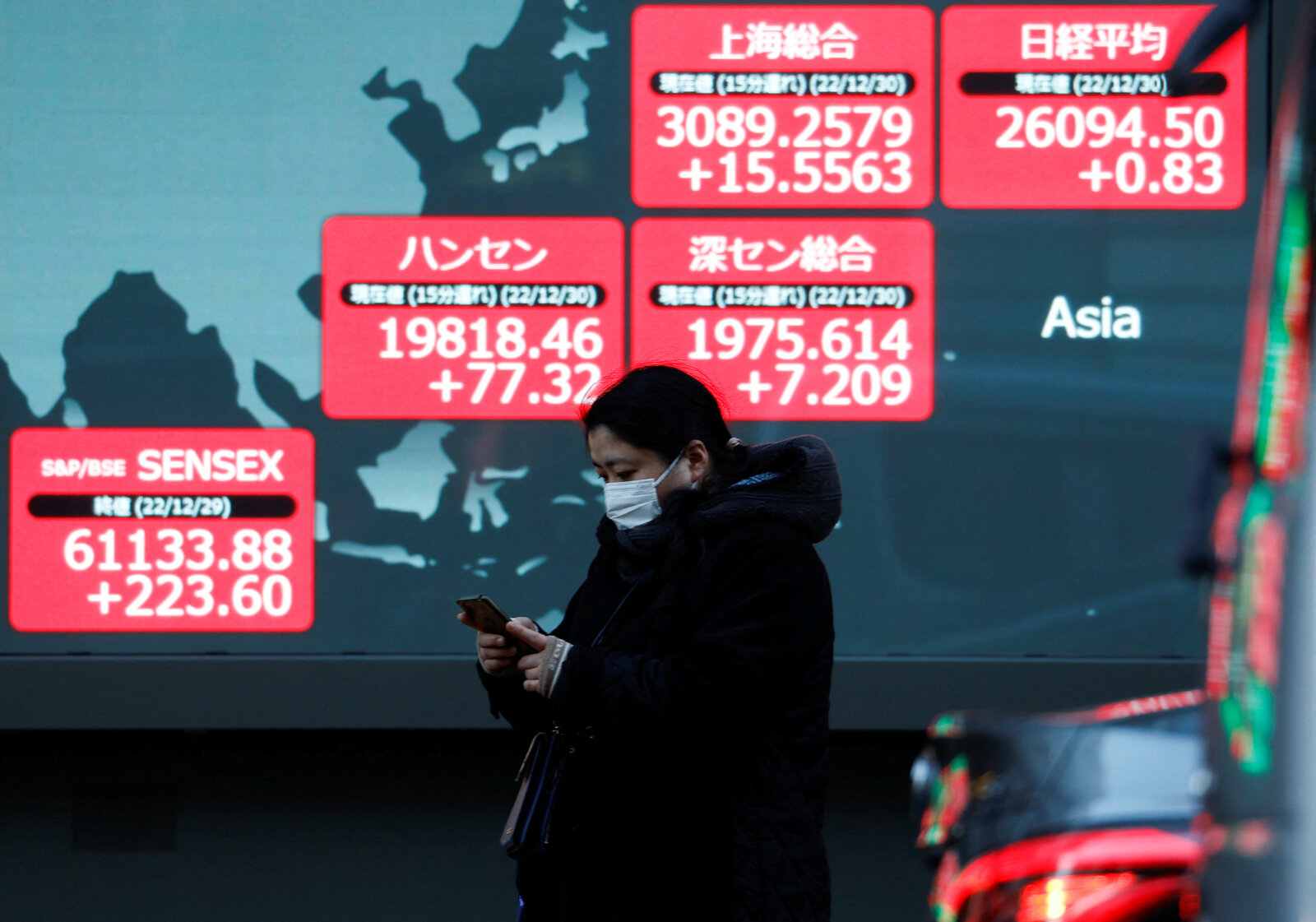2022 was the worst year for stocks and bonds since the financial crash

2022 wiped more than USD 30 tn in value from global stocks and bonds as soaring inflation, rising borrowing costs, and global outflows thanks to the ongoing war on Ukraine handed markets their heaviest annual loss since the global financial crisis, according to the Financial Times. Global equities lost a combined USD 25 tn last year, while government and corporate debt shed some USD 9,6 tn. The benchmark MSCI All-World index of EM and developed stocks posted a 20% decline in 2022, its biggest drop since 2008.
Sovereign wealth funds were no exception: Sovereign wealth and public pension funds lost a combined USD 2.3 tn during the market downturn, according to the annual report from industry platform Global SWF. Sovereign wealth funds’ assets dropped to USD 10.6 tn from USD 11.6 tn in 2021, while public pension funds’ assets dropped to USD 20.8 tn.
Fitch Ratings has downgraded its 2023 global growth forecast to 1.4% from 1.7% in its latest Global Economic Outlook, citing rising interest rates and the wobbly Chinese property market. Fitch is predicting growth in EMs excluding China of 2.0% in 2023, down from 3.5% in 2022, blaming deteriorating Asian economies. The rating agency raised its 2022 growth forecast to 2.6% from September’s 2.4% on the back of a strong 3Q 2022.
Also worth noting this morning:
- Sam Bankman-Fried will plead not guilty to a range of FTX fraud charges when he appears in court tomorrow. Separately, FTX customers have launched a class action lawsuit against the exchange. (Bloomberg | Reuters)
- European natural gas prices have dipped to pre-Ukraine war lows, as warmer weather helps the continent cut down on gas use. (FT)
- US oil giants expect record earnings in 2022: ExxonMobil and Chevron are expected to cash out a combined USD c.100 bn in earnings in 2022 thanks to soaring global oil prices. (FT)
- Croatia just became the eurozone’s 20th member: European Central Bank President Christine Lagarde said the move proved the continued appeal of the EUR. The country also joined the Shengen area yesterday. (Bloomberg)
|
|
EGX30 |
14,599 |
+0.1% (YTD: +0.0%) |
|
|
USD (CBE) |
Buy 24.70 |
Sell 24.79 |
|
|
USD at CIB |
Buy 24.70 |
Sell 24.77 |
|
|
Interest rates CBE |
16.25% deposit |
17.25% lending |
|
|
Tadawul |
10,547 |
+0.7% (YTD: +0.7%) |
|
|
ADX |
10,211 |
-0.6% (YTD: 0.0%) |
|
|
DFM |
3,336 |
+0.2% (YTD: 0.0%) |
|
|
S&P 500 |
3,840 |
-0.3% (YTD: 0.0%) |
|
|
FTSE 100 |
7,452 |
-0.8% (YTD: 0.0%) |
|
|
Euro Stoxx 50 |
3,794 |
-1.5% (YTD: 0.0%) |
|
|
Brent crude |
USD 85.91 |
+2.9% |
|
|
Natural gas (Nymex) |
USD 4.47 |
-1.8% |
|
|
Gold |
USD 1,826.20 |
+0.0% |
|
|
BTC |
USD 16,615 |
+0.8% (YTD: +0.4%) |
THE CLOSING BELL-
The EGX30 rose 0.1% on Thursday on turnover of EGP 1.49 bn (3.7% below the 90-day average). Local investors were net sellers. The index is up 22.2% YTD.
In the green: Rameda Pharma (+6.1%), Juhayna (+4.7%) and Ezz Steel (+4.2%).
In the red: Madinet Nasr Housing and Development (-1.8%), Elsewedy Electric (-1.7%) and CIRA (-1.7%).
Asian markets are up across the board on a wave of new-year optimism in early trading this morning. Futures suggest that optimism won’t catch on in European and US markets, most of which look set to open in the red later on today.